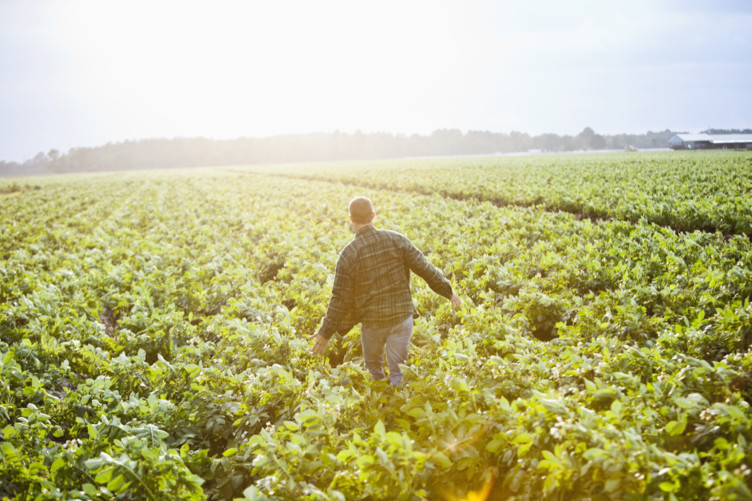Is Climate Change Turning Our Vegetables into Junk Food?

Vegetables have fewer nutrients than ever and that could be because of increases in atmospheric CO2, according to an article by Politico. Along with the depletion of essential nutrients, crops’ sugar levels are rising, making our veggies the least nutrient-dense in history. Here’s how climate change could be affecting our crops.
Main takeaways from the article
- Vitamin, mineral, and protein content of the plants we eat has dropped significantly over the past 50 years.[1] This is due to breeding for higher yields, and increased CO2, both of which speed up plant growth, as well as depleted soil nutrients.[2]
- Our air recently hit 400 ppm CO2, and is predicted to hit 550 in the next century. That’s twice the amount of CO2 in the air than before the industrial revolution.
- CO2 is a necessary ingredient for photosynthesis. When there’s too much, plants grow faster by packing on sugars and carbohydrates, at the expense of protein and other nutrients.
- In a high-CO2 environment, plants in the C3 category (nearly all the plants we eat) showed decreases in protein and important minerals such as zinc, calcium, magnesium, potassium, and iron.[3]
- This could change the way certain foods impact your performance, even if you’re following a nutrient dense, low carbohydrate diet.
- Losses in plant nutrition affect our entire food chain: cows eat plants, and we eat cows.
- If we’re getting fewer nutrients from our food, it’s important to understand how to protect our bodies with the proper supplements.
“Every leaf and every grass blade on earth makes more and more sugars as CO2 levels keep rising,” Loladze said. “We are witnessing the greatest injection of carbohydrates into the biosphere in human history?[an] injection that dilutes other nutrients in our food supply.” – Researcher Irakli Loladze
What do fewer nutrients mean for you?
The plants you eat simply aren’t as nutrient-dense as they used to be. And as CO2 levels continue (unfortunately) to rise, it’s more important than ever to supplement accordingly.
This doesn’t mean you can make up for an empty diet of cookies and croissants by taking a handful of supplements. Getting an abundance of nutrient-dense fats, proteins, vegetables, and herbs is still the best path to feeling great and staving off the symptoms of aging. (Yes, you still have to eat your vegetables!)
The problem with low nutrients and higher carbohydrates
We know diets heavy in carbohydrates cause chronic diseases and inflammation, so what does it mean if our food system starts to shift that way from the very ground up? There’s still a long way to go before most plants produce unhealthy amounts of sugars, but shifts in global staples such as rice, wheat and corn (while already in the Bulletproof red zone) could contribute to our obesity epidemic.
While westernized diets have no problem accessing nutrients, plants are a crucial source of protein and minerals in the developing world. Studies investigating the impact of rising CO2 on crop nutrition show that by 2050, 150 million people could be at risk of protein deficiency,[4] and 138 million at risk of zinc deficiency,[5] a crucial mineral for maternal and infant health. Without access to supplementation, our fading crops could have huge global health implications.
Your vegetables aren’t junk food just yet, but these studies highlight yet another way climate change can impact our future and the lives of our children. Plants will always support a high quality, nutrient-dense diet, and with proper supplementation, keep you feeling and performing your best.
READ NEXT:
Upgrade Your Energy, Optimize Your Supplements
Sign up for early access to sales, product launches, the latest Bulletproof news and more!



